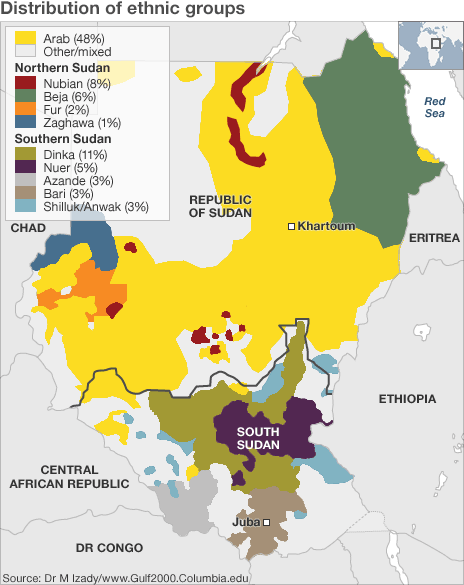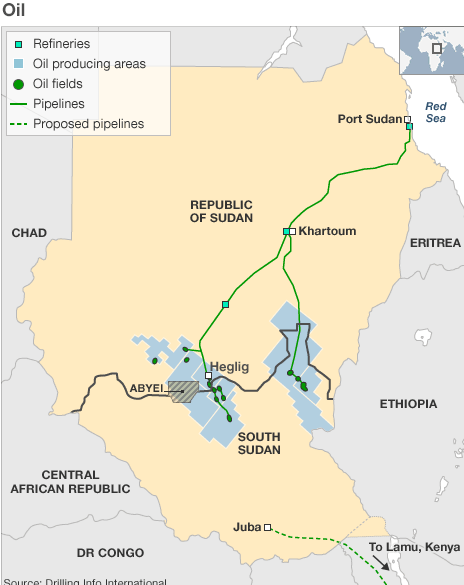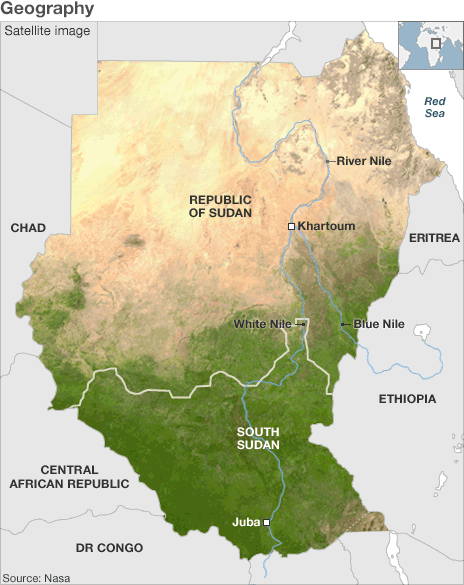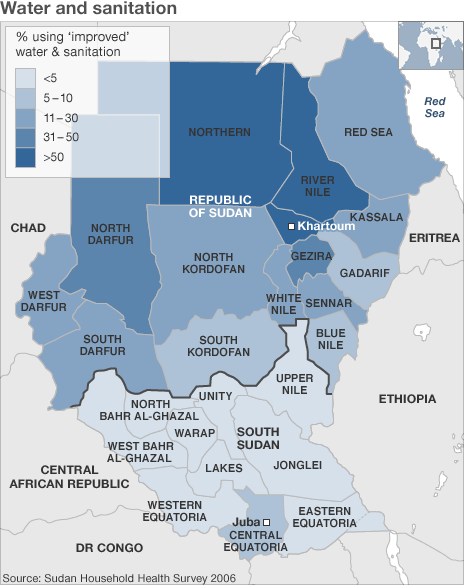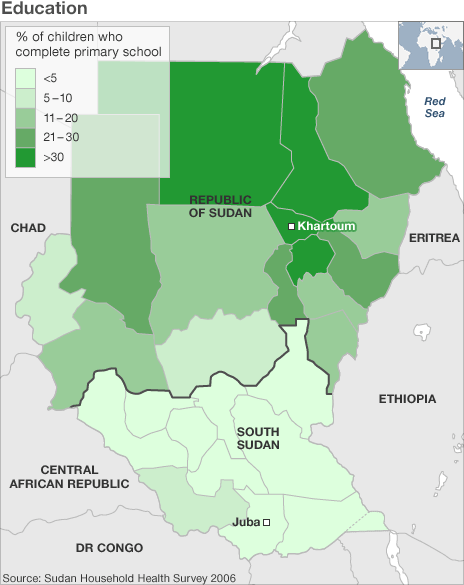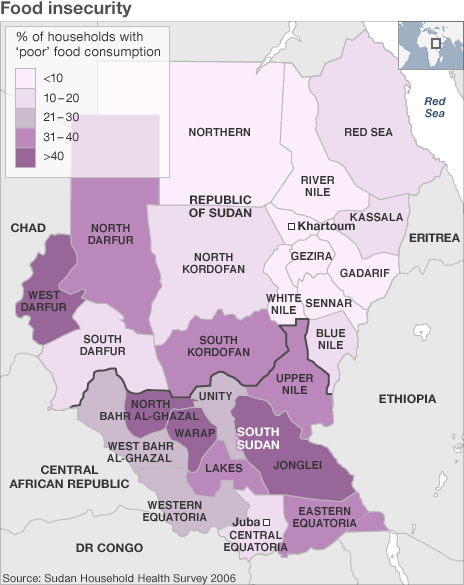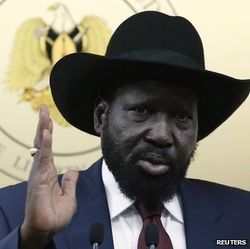
What started as an "attempted coup" targeting President Salva Kiir - though the accused deny it was anything of the sort - has mutated into something that threatens the whole country.
The army admits it has lost control of Bor, the capital of Jonglei state, to forces apparently led by General Peter Gadet.
Perhaps worse still, the fighting is already exacerbating ethnic tensions in what is an ethnically divided country.
The initial trigger for the violence was political - the ambitions of people like former Vice-President Riek Machar and the determination of President Kiir to hold onto power.
President Kiir hasn't yet convinced everyone that Mr Machar and other senior politicians intended to overthrow him by force.
"I think all of the bits of information coming out don't point to a coup," says South Sudan expert Douglas H Johnson.
"I am not even sure we can say there was a concerted mutiny," he adds.
But with at least 10 of the president's opponents locked up, Mr Machar, who is on the run, now has his back against the wall.
Even if he didn't want to go into rebellion, he is being pushed in that direction.
Frightening prospect
Mr Johnson feels the crisis is the result of two different processes.
The first is the "state of dissatisfaction" within the governing SPLM party.
The second is the reintegration of militiamen formerly linked to the old enemy in Khartoum in the national army.
These soldiers did not feel "secure", Mr Johnson says.
One of them, Gen Gadet, sprang into action after reports of his fellow Nuers being killed began to come out of Juba.
Mr Machar and Gen Gadet are both ethnic Nuers, but they haven't always fought on the same side in the past.
Riek Machar was sacked as vice-president in July
There has been no confirmation yet from either man that they are working together.
That said, the South Sudanese government clearly believes they are.
The prospect is frightening.
The Man who keeps One Eye Open
Gen Gadet is a tough fighter who has often rebelled against the SPLM.
An expert on the Sudans, John Young, memorably described him as someone who "is said to wash only one side of his face at a time so that he can always keep an eye open".
However he is not a politician.
Luka Biong, a former SPLM minister now at Harvard university, says that "it is believed that Gadet is under the political leadership of Dr Riek and Taban Deng", the former governor of Unity state, who is also wanted by the government.
Again, this needs to be confirmed.
But this combination of political and military strength would seriously threaten the government, in the way that Gen Gadet's previous rebellion or those of other military men like Bapiny Montuil or George Athor did not.
Mr Machar is not universally liked, but he does have passionate supporters, who are often from the Nuer.
The ethnic dimension is particularly worrying for the country.
Human Rights Watch reports that both Nuer and Dinka (President Kiir's ethnic group) were killed because of their ethnicity in Juba.
A political clash is aggravating already existing ethnic tensions.
For many Dinka, the attack on Bor brings back horrifying memories.
In 1991, when Mr Machar broke away to form his own rebel movement, soldiers and armed Nuer civilians allied to him carried out the Bor massacre.
Amnesty International said at least 2,000 Dinka were killed, though the real number may have been higher.
As Gen Gadet's Nuer soldiers attack Bor, many Dinka from the region are terrified that something similar may reoccur.
So what will happen now?
Unsteady Politics
Both President Kiir and Mr Machar will come under regional and international pressure to negotiate. The former has said he is ready to talk.
However, it would be no surprise if this did not happen, or did not end the fighting.
Mr Biong is concerned that Gen Gadet could link up with the Murle rebel leader, David Yau Yau, who also operates in Jonglei.
If he does, it would be quite a leap, since Gen Gadet had been one of the main army commanders charged with fighting David Yau Yau.
Nevertheless, in the topsy turvy world of South Sudanese military politics, it would not be totally surprising, not least because both have close links to Khartoum.
The states of Unity and Upper Nile should be watched closely too.
In both - and to a lesser extent in the Equatorias in the southernmost part of South Sudan - there are a lot of angry young men who are fed up with the president's leadership.
The South Sudanese president declared a curfew in the capital Juba on Monday after clashes between rival factions of soldiers
It would be no surprise if the fighting spread.
Mr Biong says the situation is dramatic enough to require wide-reaching measures.
Juba should "dissolve the current government to form a government of national unity guided by the SPLM to oversee the next elections in 2015, release all detainees and commit to reconciliation within the SPLM", he says.
That seems unlikely, however.
The next phase may well be a military one, as both sides test out the limits of their strength.
All this is a result of the decades of war in southern Sudan, a political class dominated by ambition, and an ethnically divided and militarised society.
Just over two years after it became independent, South Sudan is living out some of its worst fears.
Audio slideshow: Across the two Sudans
Source: BBC News Africa
Twitter: http://twitter.com/Erika_Amoako
LinkedIn: http://www.linkedin.com/pub/erika-amoako-agyei/4/882/4a6
Facebook: Africa Business Review Face Page
Facebook: http://www.facebook.com/AfricaBusinessReview
Website: www. AfricaBusinessReview.net
Website: www.AfricaIntercultural.com
